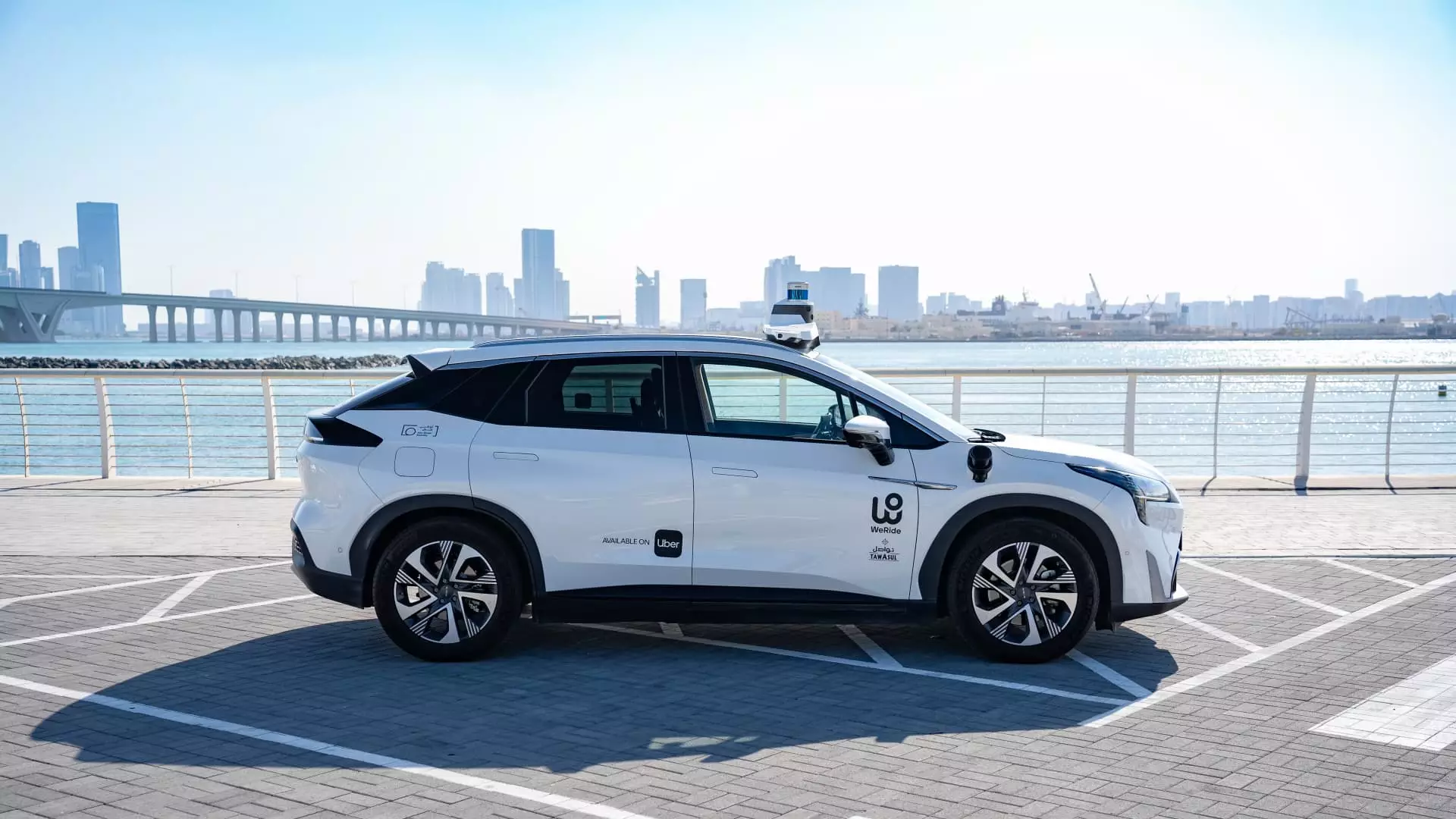The mobility landscape is rapidly evolving, and nowhere is this more evident than in the recent partnership between Uber and China’s WeRide. Announced on a Friday, this collaboration aims to introduce autonomous vehicle (AV) rides in the bustling city of Abu Dhabi. This venture is not only significant for the region but marks a strategic milestone for Uber in its pursuit of scalable autonomous mobility solutions across the globe.
As the first step in this ambitious project, each WeRide robotaxi accessed through the Uber app will feature a human driver. This measure is critical to ensure the safety and reliability of rides for both passengers and pedestrians. By prioritizing human oversight, Uber is seeking to build trust among users who may be apprehensive about the transition to fully autonomous vehicles. The careful implementation of human drivers will likely aid in gathering valuable insights about rider experiences, paving the way for improvements before the anticipated full-scale launch of a driverless service slated for 2025.
Initially, the robotaxis will operate along popular routes connecting Saadiyat Island, Yas Island, and Zayed International Airport. This selection of routes is strategic, tapping into areas with high tourist and local traffic, thus maximizing visibility and usage of the AV service from the outset. Looking forward, Uber and WeRide plan to scale these services significantly, focusing on a fully autonomous experience that could redefine transport dynamics in the U.A.E.
WeRide is not just another tech provider; it boasts a robust track record in autonomous vehicle development, holding significant operational permits not only in the U.A.E. but also in markets like Dubai, China, Singapore, and the U.S. During a recent earnings call, Uber’s CEO, Dara Khosrowshahi, emphasized the company’s extensive network of over a dozen partnerships with various AV firms, signaling a strategic cohesion aimed at enhancing mobility services. This interconnectedness may serve as a competitive advantage, allowing Uber to scale its autonomous offerings more efficiently.
Despite the promising outlook, analysts have pointed out potential challenges in Uber’s autonomous strategy. Noteworthy is the warning from Redburn Atlantic analyst James Cordwell, who highlighted “structural risk from autonomous vehicles” impacting Uber’s core mobility revenues. The landscape is competitive, especially with Alphabet’s Waymo as a significant player and potential adversary in the U.S. market. Cordwell’s insights suggest that while Uber is well-positioned to aggregate AV services, the path to widespread adoption will not be devoid of hurdles.
As Uber forges ahead with its collaboration with WeRide, it stands at a crossroads where technology, market dynamics, and user behavior converge. The ambitious roadmap to integrate autonomous vehicles into everyday transport in Abu Dhabi could pave the way for a new era in mobility, offering insights and fostering innovations that may carry far beyond the U.A.E. The success of this initiative will hinge on the delicate balance between technological prowess and user trust, adapting swiftly to challenges and opportunities that lie ahead.


Leave a Reply